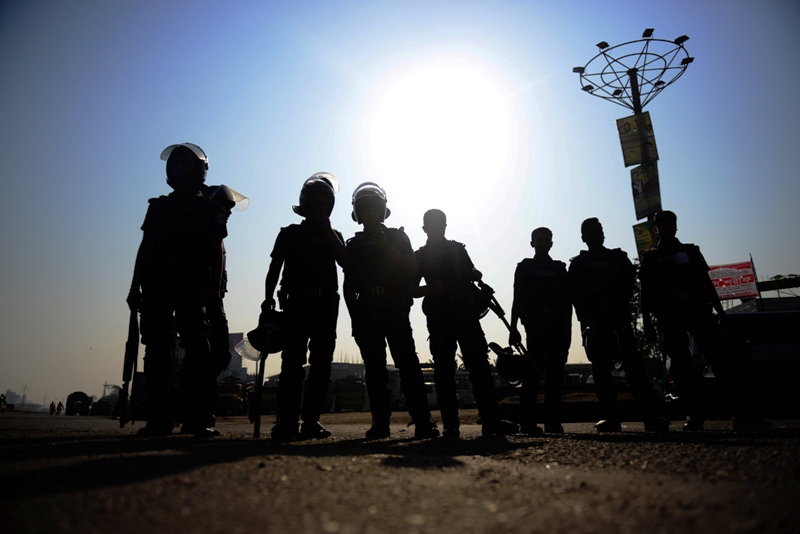
Delwar Hossain Sayedee, vice-president of the Jamaat-e-Islami party and a fiery Islamic preacher, is set to be the second JI leader to be sentenced by a war crimes court on charges of rape, genocide, murder and religious persecution.
Jamaat, the nation's largest Islamic party, called the strike to protest what it dismisses as politically motivated trials of its entire leadership including its chief and deputy leader.
The verdict is expected to be handed down around noon (0600 GMT) and Sayadee could face the death penalty.
Earlier this month the International Crimes Tribunal, a local court, sentenced Jamaat's assistant secretary general Abdul Quader Molla to life imprisonment, sparking deadly protests by Jamaat-i-Islami that left 16 people dead.
The verdict also enraged secular protesters, tens of thousands of whom have since poured onto a central Dhaka intersection to reject the "lighter sentence" and demand the execution of Jamaat leaders.
Security was tight in the Bangladeshi capital on Thursday, with around 10,000 policemen on patrol. The government has also deployed border guards as reinforcement to prevent violence.
Schools and shops were shut and roads in Dhaka and inter-city motorways were empty.
Two home-made bombs exploded in central Dhaka, deputy police commissioner Masuder Rahman said. "Ten people were arrested from the area," he told AFP.
The tribunal, a domestic body with no international oversight, has been tainted by controversies and allegations it is targeting only the opposition. Rights groups say its legal procedures fall short of international standards.
The government rejects the accusations, saying the trials are needed to heal the wounds of the war that it says killed three million people.
It accuses Jamaat leaders of being part of pro-Pakistani militias blamed for much of the 1971 carnage.






1732105641-0/BeFunky-collage-(78)1732105641-0-270x192.webp)


1732518687-0/Copy-of-Untitled-(78)1732518687-0-270x192.webp)







COMMENTS
Comments are moderated and generally will be posted if they are on-topic and not abusive.
For more information, please see our Comments FAQ